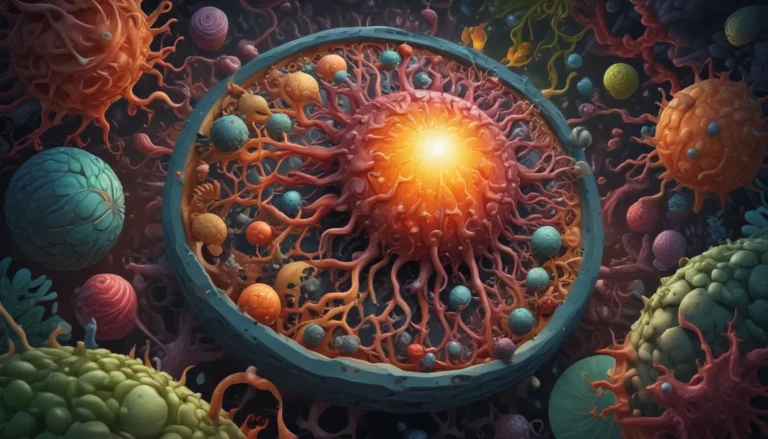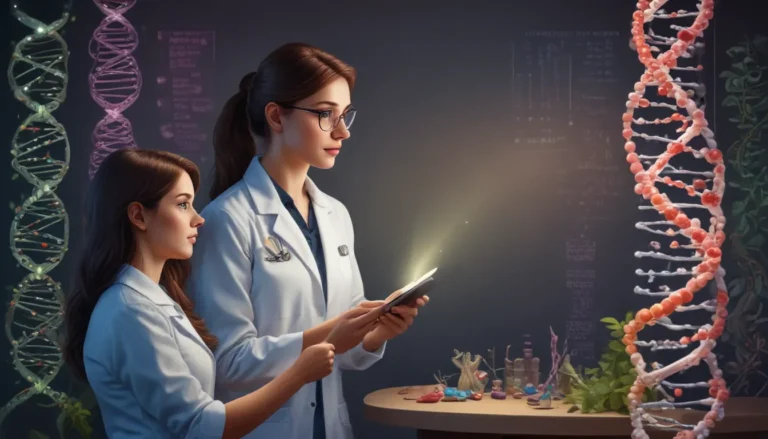A Note About Images: The images used in our articles are for illustration purposes only and may not exactly match the content. They are meant to engage readers, but the text should be relied upon for accurate information.
In recent years, biology has experienced remarkable progress, with one of the most groundbreaking discoveries being recombinant DNA technology. This innovative technique has transformed the way we perceive genetics and has opened up new avenues in fields such as medicine, agriculture, and bioengineering. Recombinant DNA involves combining DNA fragments from different sources, enabling scientists to manipulate genes and create hybrid DNA sequences with desirable traits.
In this article, we will delve into 14 captivating facts about recombinant DNA, shedding light on its impact across various disciplines and the remarkable possibilities it presents for the future of science and technology.
Unleashing the Power of Recombinant DNA Technology
- Recombinant DNA technology has revolutionized medicine, agriculture, and biotechnology by enabling the transfer of genes between organisms, leading to the creation of life-saving drugs and genetically modified crops. It has transformed genetics, gene therapy, vaccines, and personalized medicine, while also raising ethical and safety considerations.
Unveiling the Versatility of Recombinant DNA
Recombinant DNA technology serves as a powerful tool with diverse applications in numerous fields:
-
Transfer of Genes Between Organisms: By inserting specific genes into an organism’s DNA, scientists can confer new traits or capabilities that the organism wouldn’t naturally possess.
-
Development of Life-Saving Drugs: This technology has facilitated the production of therapeutic proteins like insulin, human growth hormone, and clotting factors, revolutionizing medical treatments.
-
Production of Genetically Modified Crops: Recombinant DNA has allowed the introduction of desirable traits, such as pest resistance and increased environmental tolerance, into agricultural crops.
-
Contributing to Gene Therapy: Techniques in recombinant DNA are used to deliver functional genes into patients’ cells for treating genetic disorders.
-
Advancing Understanding of Genetics: Through DNA manipulation, scientists have gained insights into gene function, inheritance patterns, and genetic diseases.
-
Development of Vaccines: Recombinant DNA technology has enabled the production of safer and more effective vaccines by introducing specific genes into microorganisms.
-
Applications in Forensic Science: DNA profiling in forensic investigations relies on recombinant DNA techniques for amplifying and analyzing specific DNA regions.
-
Personalized Medicine: This technology allows for the production of customized medications tailored to an individual’s genetic profile, enhancing treatment efficacy and safety.
-
Facilitation of Biofuel Production: Genetically engineered microorganisms can convert renewable resources into biofuels, reducing our dependence on fossil fuels.
-
Revolutionizing Genetic Engineering: Recombinant DNA techniques provide scientists with powerful tools to manipulate and modify genes, leading to unprecedented advancements in biotechnology.
-
Extensive Use in Research: Scientists use recombinant DNA techniques to study gene expression, protein function, and the molecular mechanisms underlying biological processes.
-
Development of Genetically Engineered Animals: Specific traits or modifications can be introduced into animals, contributing to advancements in agriculture, pharmaceuticals, and research.
-
Vital Role in DNA Cloning: By inserting DNA fragments into plasmids or viral vectors, scientists replicate and amplify target DNA for further analysis.
Ethical Considerations and Safety
- The use of recombinant DNA technology raises ethical questions regarding genetically modified organisms and potential long-term effects on ecosystems. While the benefits are vast, it is essential to carefully consider and manage potential risks to ensure responsible use of this powerful tool.
A Glimpse into the Future of Recombinant DNA
Recombinant DNA technology continues to advance at a rapid pace, with ongoing research expanding its applications in various industries:
-
Customized Medicine: The development of personalized medicine based on individual genetic profiles.
-
Improved Crop Yield: Enhancing crop yield, nutritional content, and pest resistance through genetic modification.
-
Enhanced Gene Therapy: Treating inherited diseases more effectively through gene therapy advancements.
In conclusion, the impact of recombinant DNA technology on the fields of biology, medicine, and agriculture is undeniable. It has revolutionized scientific research, offering innovative solutions to critical challenges and holding tremendous promise for the future. By understanding the remarkable potential of recombinant DNA, we can appreciate the transformative effects it has on modern science.
Frequently Asked Questions
-
What is recombinant DNA?
Recombinant DNA refers to the artificial combination of DNA molecules from different sources, allowing the creation of new sequences that do not naturally occur. This technology enables the transfer of genes between organisms for various applications in science and industry. -
How is recombinant DNA technology used in medicine?
Recombinant DNA technology has revolutionized medicine by enabling the production of therapeutic proteins through genetic engineering. These proteins, such as insulin and growth hormones, have significantly improved the treatment of various diseases. -
What role does recombinant DNA play in agriculture?
Recombinant DNA technology has been crucial in the development of genetically modified crops with desirable traits, enhancing yield, pest resistance, and nutritional quality. This technology has the potential to address food security issues and reduce the environmental impact of traditional farming practices. -
Are there any risks associated with recombinant DNA?
While recombinant DNA technology offers numerous benefits, it is essential to assess and manage potential risks carefully. Concerns include the unintentional release of genetically modified organisms, possible health effects, and ethical implications. Regulations and ongoing research aim to minimize these risks and ensure safe and responsible use of recombinant DNA. -
What is the future of recombinant DNA technology?
The future of recombinant DNA technology holds exciting possibilities, including personalized medicine, improved agricultural practices, and advanced gene therapy. Ongoing research and advancements in this field promise to unlock even more innovative applications and discoveries.
The journey through the realm of recombinant DNA technology unveils a world of endless possibilities and transformative impacts across diverse industries. With a focus on ethical considerations, safety, and responsible use, the future of this groundbreaking technology is poised to bring forth new horizons in science and innovation. Join us in exploring the captivating realm of recombinant DNA as we delve deeper into the wonders of genetic engineering and its boundless potential for the future.





